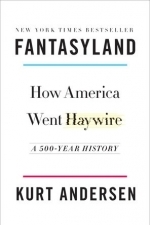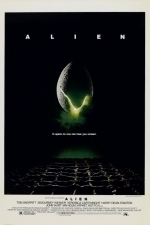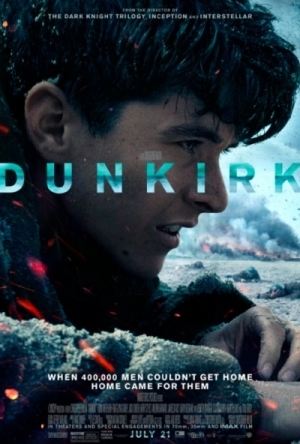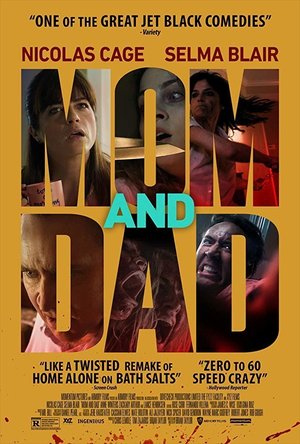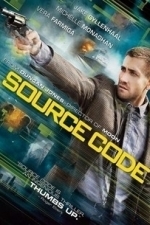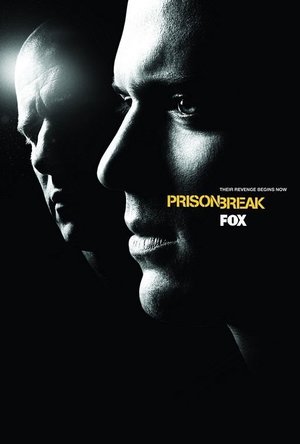Search
Search results
Caitlin Ann Cherniak (85 KP) rated Fantasyland: How America Went Haywire in Books
Oct 22, 2018
Why do I have a feeling that the guy who wrote this just went on a rant and decided to put that whole rant into one giant ass book?
Don't get me wrong. This book has a couple of points, especially when he discusses religion and the Salem witch trails. However, when he starts getting into the more modern points of fantasy, either I didn't see it at all, or he was basically really poking fun at what the whole point of fantasy really is.
The title of the book is Fantasyland: How America Went Haywire. If he's going to use the word "Haywire" in a title, he better show pretty clear examples of why America is being flushed down the toilet. Poking fun at people cosplaying, playing video games, and being able to have fun at Disneyland or Disney World is not a point to say why America seems to be failing as a society. In fact, I can make a counterargument by saying that flights of fantasy in those contexts are actually forming the culture, not destroying it. Because of the evolution of entertainment (such as film, video games, etc.), it's easier to envision fantasy stories come to life. Before that, we had books, and no one was poking fun at books throughout this entire giant essay. Not only is that missing the forest for the trees, but it makes the argument of people being shown too much fantasy through visual mass media is a very shallow take on the topic of fantasy.
Also, the premise of the book talks about how people are arguing that Trump is ruining America because of his bullshit (and they're not wrong). I expected the book to discuss politics more in depth as a way to add onto the fantasyland argument. The book doesn't even do that, not even at the end when it "comes full circle" back to the Trump argument. If anything, the book kinda let it slide that it was for Trump and his radical ideas rather than finding flaws in them as people would expect. Look, if the book ended up explaining why Trump was trying to escape the Fantasyland argument, I'm all for reading that to make my own points. However, by just simply saying that Trump is being more realistic without any real reason, that also makes this essay a shallow writing. People want to read on why Trump has realistic views or not. If the point of this essay is talking about how fantastic ideas are plaguing a great nation, why not add that into the mix?
This essay was a real hit and miss for me. For something that's as thick as War and Peace, I expected this essay to have as juicy material as War and Peace, but it doesn't. It's just a 500 year rant on how "stupid" society can be, and that lost me as I finished the book.
Don't get me wrong. This book has a couple of points, especially when he discusses religion and the Salem witch trails. However, when he starts getting into the more modern points of fantasy, either I didn't see it at all, or he was basically really poking fun at what the whole point of fantasy really is.
The title of the book is Fantasyland: How America Went Haywire. If he's going to use the word "Haywire" in a title, he better show pretty clear examples of why America is being flushed down the toilet. Poking fun at people cosplaying, playing video games, and being able to have fun at Disneyland or Disney World is not a point to say why America seems to be failing as a society. In fact, I can make a counterargument by saying that flights of fantasy in those contexts are actually forming the culture, not destroying it. Because of the evolution of entertainment (such as film, video games, etc.), it's easier to envision fantasy stories come to life. Before that, we had books, and no one was poking fun at books throughout this entire giant essay. Not only is that missing the forest for the trees, but it makes the argument of people being shown too much fantasy through visual mass media is a very shallow take on the topic of fantasy.
Also, the premise of the book talks about how people are arguing that Trump is ruining America because of his bullshit (and they're not wrong). I expected the book to discuss politics more in depth as a way to add onto the fantasyland argument. The book doesn't even do that, not even at the end when it "comes full circle" back to the Trump argument. If anything, the book kinda let it slide that it was for Trump and his radical ideas rather than finding flaws in them as people would expect. Look, if the book ended up explaining why Trump was trying to escape the Fantasyland argument, I'm all for reading that to make my own points. However, by just simply saying that Trump is being more realistic without any real reason, that also makes this essay a shallow writing. People want to read on why Trump has realistic views or not. If the point of this essay is talking about how fantastic ideas are plaguing a great nation, why not add that into the mix?
This essay was a real hit and miss for me. For something that's as thick as War and Peace, I expected this essay to have as juicy material as War and Peace, but it doesn't. It's just a 500 year rant on how "stupid" society can be, and that lost me as I finished the book.
Darren (1599 KP) rated Alien (1979) in Movies
Jun 20, 2019
Story: It would be fair to say when this came out it was brilliant and stand alone on the type of film. Now the story has been copied, pinched from and used to the death. This paved the way for the truly trapped horror films because the space mission means it’s the ship of nothing. The twist that comes half way through offers a surprise and of cause the mood of the film changes drastically when the alien makes its first appearance. (10/10)
Actor Review: Sigourney Weaver – Ripley, just part of the crew really but steps up when the alien starts wreaking havoc. In a role that will be remembered as one of the best and most iconic in sci-fi history this performance will never be forgotten. Breakout Performance Award, Iconic Performance Award, Star Performance Award (10/10)
ripley
Actor Review: Tom Skerritt – Captain Dallas puts the team together to investigate the planet but has to step up when they don’t come back alone. Good performance showing leadership in time of panic. (9/10)
Actor Review: Ian Holm – Ash the science officer who is very distant as well as keeping a big secret from the rest of the crew. Good performance from Holm that opened a door for a twist in films that people actually have to think about. (9/10)
holm
Actor Review: John Hurt – Kane gets a creature stuck on his face before looking like making a full recovery only to make film history. This character has one of the most iconic sci-fi horror deaths in history. Unluckiest Character Award (9/10)
hurt
Director Review: Ridley Scott – Creates a world that no one saw coming and shows brilliant direction to create atmosphere throughout. (10/10)
Horror: There is no escape from a creature you have never met. (10/10)
Sci-Fi: Redefines the sci-fi genre to use true horror. (10/10)
Special Effects: Stunning special effects that even after 30 plus years still haven’t dated. (10/10)
Believability: We don’t know what is really in space until we go deeper enough. (5/10)
Chances of Tears: No (0/10)
Settings: When it comes to horror you need great location isolation is the best as we know the characters have nowhere to run, this offers that making the setting perfect. (10/10)
Suggestion: Most films can come and go and gain a few fans, this is not one of them it is one of the first films people will say when you say sci-fi. This makes it a must watch and when you do you will be reward but I expect most of you have already seen it so watch it again. (Watch)
Best Part: Alien first reveal.
Kill Of The Film: Kane
Trivia: The original title was Space Beast.
Oscar Chances: Won for Best Effects.
Chances of Sequel: Has three direct sequels and a couple of versus films.
Overall: Masterpiece classic must see
https://moviesreview101.com/2014/02/12/alien-1979/
Actor Review: Sigourney Weaver – Ripley, just part of the crew really but steps up when the alien starts wreaking havoc. In a role that will be remembered as one of the best and most iconic in sci-fi history this performance will never be forgotten. Breakout Performance Award, Iconic Performance Award, Star Performance Award (10/10)
ripley
Actor Review: Tom Skerritt – Captain Dallas puts the team together to investigate the planet but has to step up when they don’t come back alone. Good performance showing leadership in time of panic. (9/10)
Actor Review: Ian Holm – Ash the science officer who is very distant as well as keeping a big secret from the rest of the crew. Good performance from Holm that opened a door for a twist in films that people actually have to think about. (9/10)
holm
Actor Review: John Hurt – Kane gets a creature stuck on his face before looking like making a full recovery only to make film history. This character has one of the most iconic sci-fi horror deaths in history. Unluckiest Character Award (9/10)
hurt
Director Review: Ridley Scott – Creates a world that no one saw coming and shows brilliant direction to create atmosphere throughout. (10/10)
Horror: There is no escape from a creature you have never met. (10/10)
Sci-Fi: Redefines the sci-fi genre to use true horror. (10/10)
Special Effects: Stunning special effects that even after 30 plus years still haven’t dated. (10/10)
Believability: We don’t know what is really in space until we go deeper enough. (5/10)
Chances of Tears: No (0/10)
Settings: When it comes to horror you need great location isolation is the best as we know the characters have nowhere to run, this offers that making the setting perfect. (10/10)
Suggestion: Most films can come and go and gain a few fans, this is not one of them it is one of the first films people will say when you say sci-fi. This makes it a must watch and when you do you will be reward but I expect most of you have already seen it so watch it again. (Watch)
Best Part: Alien first reveal.
Kill Of The Film: Kane
Trivia: The original title was Space Beast.
Oscar Chances: Won for Best Effects.
Chances of Sequel: Has three direct sequels and a couple of versus films.
Overall: Masterpiece classic must see
https://moviesreview101.com/2014/02/12/alien-1979/

Veggie Magazine
Food & Drink and Magazines & Newspapers
App
If you love meat-free recipes, shopping discounts, giveaways, celebrity interviews, ethical fashion...
Lee (2222 KP) rated Dunkirk (2017) in Movies
Jul 26, 2017
Breathtaking and Intense
It's 1940 and the Nazis are overpowering the British army, forcing them to retreat to Dunkirk in an effort to return home to England. The English channel is all that stands in the way of the 400,000 soldiers that are stranded on the beach. The story begins with Tommy (Fionn Whitehead), making his way through the town as propaganda is being dropped from the sky, informing them that the enemy are closing in. After a brief dash to avoid the bullets that begin raining down on him and some fellow soldiers, he barely manages to make it to the beach where the immense desperation of the situation becomes apparent. Thousands of men lined up, waiting for something to free them while bodies wash up on the beach. The cinematic scale is, as you'd expect from Christopher Nolan, impressive. And it doesn't let up from then on.
We follow three different stories, covering land, sea and air and spanning differing time-frames. Intersecting and even overtaking each other at crucial moments, which sounds confusing but actually works very well. After being introduced to the perspective on land, which then continues to play out over a week, we're introduced to Mr Dawson (Mark Rylance) as he prepares to set off from England by yacht along with his son and another local boy, loaded with lifejackets and keen to do their bit to help bring our boys home. This storyline is set to play out over the period of one day. Finally, we're introduced to RAF pilot Farrier (Tom Hardy), whose story will play out over an hour. He's up in the sky, over the channel. As we alternate between each story, momentum is never lost and the tension continues to grow as time, and available options, begin to dwindle. On land, bombs, bullets and torpedoes repeatedly prevent a successful escape, sinking boats and ships. Up in the air, a damaged fuel gauge means that Farrier has to constantly guesstimate how much fuel and time he's got left before dropping out of the sky, while single-handedly taking out enemy planes in the process. Down on the water, Dawson and his small crew have their own drama after rescuing a stranded soldier (Cillian Murphy). Clearly a broken man who takes a turn for the worse upon realising that they're not headed for home and are in fact on their way back to the hell that he's just left behind.
Despite featuring a number of famous faces, probably the most surprising cast member of all is Harry Styles. Every time he features in a scene, and he does feature quite a bit, it kind of threw me off balance and I was just expecting him to cock the whole thing up. Luckily he doesn't. This is a truly breathtaking movie, with no over the top CGI or gore and with everyone at the top of their game. Perfectly ramped up tension, accompanied by an intense musical score from the fantastic Hans Zimmer. The dogfights, featuring real spitfires filmed over the English Channel, are also incredible with the roar of their engines and bullets flying. The movie does an amazing job of fully immersing you in this pivotal moment of history. It's truly edge of seat stuff throughout. Incredible.
We follow three different stories, covering land, sea and air and spanning differing time-frames. Intersecting and even overtaking each other at crucial moments, which sounds confusing but actually works very well. After being introduced to the perspective on land, which then continues to play out over a week, we're introduced to Mr Dawson (Mark Rylance) as he prepares to set off from England by yacht along with his son and another local boy, loaded with lifejackets and keen to do their bit to help bring our boys home. This storyline is set to play out over the period of one day. Finally, we're introduced to RAF pilot Farrier (Tom Hardy), whose story will play out over an hour. He's up in the sky, over the channel. As we alternate between each story, momentum is never lost and the tension continues to grow as time, and available options, begin to dwindle. On land, bombs, bullets and torpedoes repeatedly prevent a successful escape, sinking boats and ships. Up in the air, a damaged fuel gauge means that Farrier has to constantly guesstimate how much fuel and time he's got left before dropping out of the sky, while single-handedly taking out enemy planes in the process. Down on the water, Dawson and his small crew have their own drama after rescuing a stranded soldier (Cillian Murphy). Clearly a broken man who takes a turn for the worse upon realising that they're not headed for home and are in fact on their way back to the hell that he's just left behind.
Despite featuring a number of famous faces, probably the most surprising cast member of all is Harry Styles. Every time he features in a scene, and he does feature quite a bit, it kind of threw me off balance and I was just expecting him to cock the whole thing up. Luckily he doesn't. This is a truly breathtaking movie, with no over the top CGI or gore and with everyone at the top of their game. Perfectly ramped up tension, accompanied by an intense musical score from the fantastic Hans Zimmer. The dogfights, featuring real spitfires filmed over the English Channel, are also incredible with the roar of their engines and bullets flying. The movie does an amazing job of fully immersing you in this pivotal moment of history. It's truly edge of seat stuff throughout. Incredible.
BankofMarquis (1832 KP) rated Paddington 2 (2017) in Movies
Feb 3, 2019
Wonderful, whimsical film for kids and adults alike
As I was perusing various "Top Films of 2018" lists, one surprising film kept showing up on these lists, so I thought I'd better check it out.
And I'm glad I did for PADDINGTON 2 is a charming family film that entranced me from beginning to end with wonderful performances and a charm and whimsy that hooked me from start to finish.
A follow-up to the moderate 2014 hit (based on the beloved children's books series) about a Peruvian bear that heads to 19th Century London seeking adventure - and finds a family - PADDINGTON 2 follows said Bear as he is caught up in a robbery and is mistakenly jailed for the crime. Can Paddington make friends with the burly inmates in the prison? Can the Brown family help find the true perpetrator of the crime and help spring Paddington? Can faith and love triumph in a time of skepticism and darkness?
It's a family film, what do you think?
The joy in this film is in the telling - and Paul King (returning as Director/Writer) does a wonderful job telling a joyous, family-friendly story without diving into sacrine-ness (is that a word? It is now) and schmaltz. He tells the story with a sly wink in his eye and dives deep into whimsical detail of late 19th century London - a London racing full throttle into the steam age. There is a light cyber-punk sensibility to the proceedings and this works wonderfully well.
As you would expect, King does a nice job getting the actors to click into the sensibilities and style of this film. Ben Wishaw is back as the voice of Paddington - and he is perfectly cast. Wishaw has a naivete and sense of wonder to his voice that serves the Paddington character well. Jim Broadbent, Hugh Bonneville, Sally Hawkins and Julie Walters all reprise their roles - in winning fashion. But it is the newcomers that shine. Brendan Gleeson shows off some comic chops as main prison bad guy "Knuckles" McGinty who forms an unlikely friendship/partnership with Paddington and, especially Hugh Grant as vain, egotistical actor Phoenix Buchanan. I won't spoil the antics of Grant's character but I have a feeling that Mr. Grant had as much fun bringing this character to screen as I did watching him.
Two final things - the finale really works for me as King sets up each character's "special skill" at the beginning of the film that they will need to bring to bear (no pun intended) during the action at the end. To often, character's and character threads are set up at the beginning of a film only to be abandoned by the end, so it is satisfying to me when King sets up items at the beginning of this film and then PAYS THEM OFF at the end.
And, finally, STAY THROUGH THE CREDITS. There is a scene in the credits that is as good as anything that is in the film. I won't spoil the fun for you, but want you to know about this so you won't miss it.
A wonderful, whimsical, time at the movies. If you have kids (5,6,7 years old), this is a MUST SEE. For the rest of you, if you're looking for fun escape from the world, this film will do it.
Letter Grade A-
8 (out of 10) stars and you can take that to the Bank(ofMarquis)
And I'm glad I did for PADDINGTON 2 is a charming family film that entranced me from beginning to end with wonderful performances and a charm and whimsy that hooked me from start to finish.
A follow-up to the moderate 2014 hit (based on the beloved children's books series) about a Peruvian bear that heads to 19th Century London seeking adventure - and finds a family - PADDINGTON 2 follows said Bear as he is caught up in a robbery and is mistakenly jailed for the crime. Can Paddington make friends with the burly inmates in the prison? Can the Brown family help find the true perpetrator of the crime and help spring Paddington? Can faith and love triumph in a time of skepticism and darkness?
It's a family film, what do you think?
The joy in this film is in the telling - and Paul King (returning as Director/Writer) does a wonderful job telling a joyous, family-friendly story without diving into sacrine-ness (is that a word? It is now) and schmaltz. He tells the story with a sly wink in his eye and dives deep into whimsical detail of late 19th century London - a London racing full throttle into the steam age. There is a light cyber-punk sensibility to the proceedings and this works wonderfully well.
As you would expect, King does a nice job getting the actors to click into the sensibilities and style of this film. Ben Wishaw is back as the voice of Paddington - and he is perfectly cast. Wishaw has a naivete and sense of wonder to his voice that serves the Paddington character well. Jim Broadbent, Hugh Bonneville, Sally Hawkins and Julie Walters all reprise their roles - in winning fashion. But it is the newcomers that shine. Brendan Gleeson shows off some comic chops as main prison bad guy "Knuckles" McGinty who forms an unlikely friendship/partnership with Paddington and, especially Hugh Grant as vain, egotistical actor Phoenix Buchanan. I won't spoil the antics of Grant's character but I have a feeling that Mr. Grant had as much fun bringing this character to screen as I did watching him.
Two final things - the finale really works for me as King sets up each character's "special skill" at the beginning of the film that they will need to bring to bear (no pun intended) during the action at the end. To often, character's and character threads are set up at the beginning of a film only to be abandoned by the end, so it is satisfying to me when King sets up items at the beginning of this film and then PAYS THEM OFF at the end.
And, finally, STAY THROUGH THE CREDITS. There is a scene in the credits that is as good as anything that is in the film. I won't spoil the fun for you, but want you to know about this so you won't miss it.
A wonderful, whimsical, time at the movies. If you have kids (5,6,7 years old), this is a MUST SEE. For the rest of you, if you're looking for fun escape from the world, this film will do it.
Letter Grade A-
8 (out of 10) stars and you can take that to the Bank(ofMarquis)
Scott Tostik (389 KP) rated Mom and Dad (2018) in Movies
Jan 27, 2018
Nicholas Cage (2 more)
Great idea
Superb dialogue
Some damn fine fun with Cage and Blair
Contains spoilers, click to show
Two people who you should be able to count on for your safety as a child are your Mother and Father. But that doesn' ring true in this amazing little film by writer/director Brian Taylor.
The film's opening sequence shows a woman in a minivan with a baby in the backseat. The radio plays some strange static and out of nowhere she looks back to the infant and exits the vehicle. Leaving the baby and the van to meet their demise via an oncoming train.
What follows is pure genius and insanity that is topped by Nick Cage doing what Nick Cage does best. Losing it onscreen with a fever that only my he can provide.
Selma Blair holds her own as Cafe's seemingly mild mannered wife who turns on a dime and joins him in the craziness with a certain flair comparable to Cages insane bravado.
The kids, played by Anne Winters and Zachary Arthur, fight their parents with some Home Alonish antics that prove to serve them well.
No one can fully say what it is that officially makes the parents around the world turn on their kids. But it has something to do with white noise and static on televisions and radios across the planet. Parents instinct to protect their young like a bear is replaced with the feeling off ultimate anger and insanity.
In one scene, Blair is at the hospital coaching her sister through birth. The the is born and handed to the mother and a monitor goes all static filled and noisy. The sister clutches the baby tightly, beginnng to cut off the airwaves and choking the child. Blair rips the newborn from her sister in an attempt to protect her. But something driving her sister forces her to stand upright and destroy the baby. She ultimately fails and is sedated.
The best performance in this film goes hands down to Nicholas Cage. Who freaks out like only Cage can. And even though his appeaance resembles a slightly bloated version of Marilyn Manson. His ability to use his expression and booming voice to command insanity is off the charts amazing.
I recall a scene where the kids are locked in the basement trying to escape their folks. And Blair and Cage are looking for a way to break down the door. Nicholas bangs on the door, shaking and screaming a line i will never forget "Your motherfucking Mother said to open this goddamn door, Motherfuckers!!!! Youre going to open this motherfucking door!!!!". Cage goes one way Blair goes another... she gets a reciprocating saw and brings it to the door. Her line, while simple, is unforgettable. "It's called a Saws all because it saws all,".
She begins hacking and at the door as Cage is upstairs looking for his gun... he hears shots and runs downstairs, finding Blair sitting on the floor nursing a fresh gunshot to the arm. He freaks out and explains the gun to his wife who quotes some stats about kids hurting themselves and others with handguns. Irony at its finest.
All in all, this movie never gets boring after the parents begin to try and kill their kids. It's only better when Cages character Brent's folks show up and attempt to kill him. Lance Henricksons performance as the father is extreme and awesome.
Watch this movie if you have a spare 90 minutes, i promise you it will motherfucking not disappoint, Motherfuckers:)
The film's opening sequence shows a woman in a minivan with a baby in the backseat. The radio plays some strange static and out of nowhere she looks back to the infant and exits the vehicle. Leaving the baby and the van to meet their demise via an oncoming train.
What follows is pure genius and insanity that is topped by Nick Cage doing what Nick Cage does best. Losing it onscreen with a fever that only my he can provide.
Selma Blair holds her own as Cafe's seemingly mild mannered wife who turns on a dime and joins him in the craziness with a certain flair comparable to Cages insane bravado.
The kids, played by Anne Winters and Zachary Arthur, fight their parents with some Home Alonish antics that prove to serve them well.
No one can fully say what it is that officially makes the parents around the world turn on their kids. But it has something to do with white noise and static on televisions and radios across the planet. Parents instinct to protect their young like a bear is replaced with the feeling off ultimate anger and insanity.
In one scene, Blair is at the hospital coaching her sister through birth. The the is born and handed to the mother and a monitor goes all static filled and noisy. The sister clutches the baby tightly, beginnng to cut off the airwaves and choking the child. Blair rips the newborn from her sister in an attempt to protect her. But something driving her sister forces her to stand upright and destroy the baby. She ultimately fails and is sedated.
The best performance in this film goes hands down to Nicholas Cage. Who freaks out like only Cage can. And even though his appeaance resembles a slightly bloated version of Marilyn Manson. His ability to use his expression and booming voice to command insanity is off the charts amazing.
I recall a scene where the kids are locked in the basement trying to escape their folks. And Blair and Cage are looking for a way to break down the door. Nicholas bangs on the door, shaking and screaming a line i will never forget "Your motherfucking Mother said to open this goddamn door, Motherfuckers!!!! Youre going to open this motherfucking door!!!!". Cage goes one way Blair goes another... she gets a reciprocating saw and brings it to the door. Her line, while simple, is unforgettable. "It's called a Saws all because it saws all,".
She begins hacking and at the door as Cage is upstairs looking for his gun... he hears shots and runs downstairs, finding Blair sitting on the floor nursing a fresh gunshot to the arm. He freaks out and explains the gun to his wife who quotes some stats about kids hurting themselves and others with handguns. Irony at its finest.
All in all, this movie never gets boring after the parents begin to try and kill their kids. It's only better when Cages character Brent's folks show up and attempt to kill him. Lance Henricksons performance as the father is extreme and awesome.
Watch this movie if you have a spare 90 minutes, i promise you it will motherfucking not disappoint, Motherfuckers:)
Gareth von Kallenbach (980 KP) rated Source Code (2011) in Movies
Aug 7, 2019
Following upon his breakout success with the film Moon director Duncan Jones has returned with Source Code and has proven that he is not a one-hit wonder but also a talent on the rise.
The film stars Jake Gyllenhaal as Colter Stevens who, after waking up on a train, finds himself disoriented and unable to identify his travel companion, the attractive Christina Warren (Michelle Monaghan), who sits across from him eagerly discussing things they appear to have spoken about previously.
Taking a quick survey of his surroundings, Colter finds out that he is on a train heading to Chicago and that he cannot explain how he ended up where he currently is. Colter is not given much time to ponder his situation as the train is suddenly rocked by a massive explosion and he finds himself engulfed in a wall of flame. Shortly thereafter Colter awakens and finds himself upside down and strapped into what appears to be a cockpit of some sort.
A voice soon fills the cockpit, followed by the face of the woman he can’t identify on a video monitor. Unable to ascertain what is going on, a frantic Colter only recalls that he was a helicopter pilot on mission in Afghanistan. The mystery woman (Vera Farmiga) tells him that he is now part of a top-secret project that is attempting to unravel the mystery behind the bombing of the train.
Before he can ask too many questions, Colter once again finds himself back on the train with Christina and the same sequence of events occur before the train is engulfed by devastating fireball. When he once again awakens in his cockpit, Colter learns that the project he’s involved with can send him back in time 8 minutes into the body of someone on the train. He will be sent back time and time again to relive those final 8 min. in an effort to determine who is responsible for the bombing.
Despite his protests, Colter relives the events each time looking for new clues and each time ending up engulfed in the fireball and awakening in his cockpit. Eventually after numerous trips to the past Colter becomes obsessed with not only getting to the bottom of the mystery but with saving Christina to whom he is becoming attached through their numerous 8 minute interactions. Colter is also desperate to determine his exact situation as he has no memory of how he ended up in the program and finds himself not only trying to solve the mystery of the bombing, save Christina, but also fill in the gaps in his memory.
What follows is a fast-paced, character-driven adventure film that relies on the interaction’s between the two leads rather than special effects to carry the film. Gyllenhaal and Monaghan have good chemistry with each other and the film has some nice twists and turns that will keep the audience engrossed even if the concepts of time travel and temporal mechanics escape them.
Jones keeps the film moving at a brisk pace and it does not drag or overstay its welcome. Like Moon, Jones has based the film around a leading man who is facing isolation and questioning his mental state. With what could’ve been a dumbed-down action film, Jones has exceeded expectations and produced a smart and innovative action thriller with a touch of science fiction and romance thrown in, a winning combination that makes for a very enjoyable film.
The film stars Jake Gyllenhaal as Colter Stevens who, after waking up on a train, finds himself disoriented and unable to identify his travel companion, the attractive Christina Warren (Michelle Monaghan), who sits across from him eagerly discussing things they appear to have spoken about previously.
Taking a quick survey of his surroundings, Colter finds out that he is on a train heading to Chicago and that he cannot explain how he ended up where he currently is. Colter is not given much time to ponder his situation as the train is suddenly rocked by a massive explosion and he finds himself engulfed in a wall of flame. Shortly thereafter Colter awakens and finds himself upside down and strapped into what appears to be a cockpit of some sort.
A voice soon fills the cockpit, followed by the face of the woman he can’t identify on a video monitor. Unable to ascertain what is going on, a frantic Colter only recalls that he was a helicopter pilot on mission in Afghanistan. The mystery woman (Vera Farmiga) tells him that he is now part of a top-secret project that is attempting to unravel the mystery behind the bombing of the train.
Before he can ask too many questions, Colter once again finds himself back on the train with Christina and the same sequence of events occur before the train is engulfed by devastating fireball. When he once again awakens in his cockpit, Colter learns that the project he’s involved with can send him back in time 8 minutes into the body of someone on the train. He will be sent back time and time again to relive those final 8 min. in an effort to determine who is responsible for the bombing.
Despite his protests, Colter relives the events each time looking for new clues and each time ending up engulfed in the fireball and awakening in his cockpit. Eventually after numerous trips to the past Colter becomes obsessed with not only getting to the bottom of the mystery but with saving Christina to whom he is becoming attached through their numerous 8 minute interactions. Colter is also desperate to determine his exact situation as he has no memory of how he ended up in the program and finds himself not only trying to solve the mystery of the bombing, save Christina, but also fill in the gaps in his memory.
What follows is a fast-paced, character-driven adventure film that relies on the interaction’s between the two leads rather than special effects to carry the film. Gyllenhaal and Monaghan have good chemistry with each other and the film has some nice twists and turns that will keep the audience engrossed even if the concepts of time travel and temporal mechanics escape them.
Jones keeps the film moving at a brisk pace and it does not drag or overstay its welcome. Like Moon, Jones has based the film around a leading man who is facing isolation and questioning his mental state. With what could’ve been a dumbed-down action film, Jones has exceeded expectations and produced a smart and innovative action thriller with a touch of science fiction and romance thrown in, a winning combination that makes for a very enjoyable film.
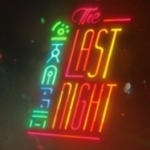
The Last Night
Video Game Watch
Humans first knew the era of survival. Then they knew the era of work. Now they live in the era of...
adventure
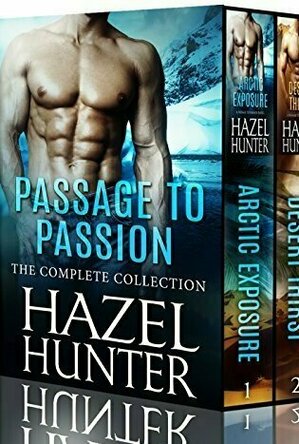
Passage to Passion - The Complete Collection
Book
The heat level goes through the roof, and the action never stops! ARCTIC EXPOSURE To the rest...
Adult Contemporary Romance Collection
Bird (1704 KP) rated Prison Break in TV
Nov 29, 2024
A Riveting Ride with a Few Bumps:
Prison Break is a show that deserves its reputation as one of the most exciting and original dramas of its time. While not without its flaws, the series delivers a thrilling mix of suspense, clever plotting, and character-driven storytelling that keeps you invested throughout its run. With an intriguing premise and a solid cast, it’s easy to see why Prison Break has garnered such a devoted fanbase.
The standout feature of Prison Break is undoubtedly its core premise. The idea of a structural engineer, Michael Scofield (played by Wentworth Miller), intentionally landing himself in prison to break out his falsely accused brother, Lincoln Burrows (Dominic Purcell), is fascinating. The execution of Michael’s plan, complete with hidden clues in his tattooed body map, is both ingenious and fun to watch unfold. The first season, in particular, excels at building tension as Michael carefully navigates the treacherous world of Fox River Penitentiary, laying the groundwork for the escape. It’s a slow burn at times, but the payoff is worth it.
The cast is another highlight. Wentworth Miller’s calm and calculated performance as Michael is captivating, and Dominic Purcell brings a solid, if sometimes overly stoic, presence to Lincoln. Robert Knepper steals the show as Theodore "T-Bag" Bagwell, delivering a performance that’s equal parts chilling and oddly charismatic. Supporting characters like Sucre (Amaury Nolasco) and Sara Tancredi (Sarah Wayne Callies) add warmth and heart to balance the often dark and gritty tone of the series.
However, the show isn’t without its flaws. While the first season is nearly airtight in its storytelling, later seasons can feel uneven. The second season’s shift to a manhunt format is exhilarating but occasionally stretches believability, with some plot twists feeling more like conveniences than organic developments. As the series progresses, the introduction of larger conspiracies and shadowy organisations adds scale but also detracts from the grounded tension that made the first season so compelling. By the time you reach the third and fourth seasons, the narrative occasionally veers into melodrama and over-the-top scenarios, which may pull some viewers out of the experience.
The pacing can also be hit or miss. While some episodes are packed with heart-pounding tension, others feel like filler, particularly in the later seasons. The show sometimes leans too heavily on cliffhangers, which can feel manipulative rather than earned. Additionally, while the cast is strong overall, some characters, like Lincoln, can come across as one-dimensional at times, and a few storylines feel underdeveloped or rushed.
That said, Prison Break is undeniably entertaining. Its gritty atmosphere, clever plotting, and high-stakes drama make it a standout among action-thrillers. The relationships between characters, particularly Michael and Lincoln’s unshakable brotherly bond, give the series emotional weight. Even with its flaws, the show’s twists and turns keep you engaged, and there’s a palpable sense of satisfaction when long-brewing plans come to fruition.
In summary, Prison Break is a fantastic watch, especially for fans of crime dramas and action-packed thrillers, though it occasionally falters under the weight of its ambition. It’s an 8/10 for me—hugely enjoyable, if not always perfect. While it may not stick the landing as well as it starts, the journey is more than worth taking.
The standout feature of Prison Break is undoubtedly its core premise. The idea of a structural engineer, Michael Scofield (played by Wentworth Miller), intentionally landing himself in prison to break out his falsely accused brother, Lincoln Burrows (Dominic Purcell), is fascinating. The execution of Michael’s plan, complete with hidden clues in his tattooed body map, is both ingenious and fun to watch unfold. The first season, in particular, excels at building tension as Michael carefully navigates the treacherous world of Fox River Penitentiary, laying the groundwork for the escape. It’s a slow burn at times, but the payoff is worth it.
The cast is another highlight. Wentworth Miller’s calm and calculated performance as Michael is captivating, and Dominic Purcell brings a solid, if sometimes overly stoic, presence to Lincoln. Robert Knepper steals the show as Theodore "T-Bag" Bagwell, delivering a performance that’s equal parts chilling and oddly charismatic. Supporting characters like Sucre (Amaury Nolasco) and Sara Tancredi (Sarah Wayne Callies) add warmth and heart to balance the often dark and gritty tone of the series.
However, the show isn’t without its flaws. While the first season is nearly airtight in its storytelling, later seasons can feel uneven. The second season’s shift to a manhunt format is exhilarating but occasionally stretches believability, with some plot twists feeling more like conveniences than organic developments. As the series progresses, the introduction of larger conspiracies and shadowy organisations adds scale but also detracts from the grounded tension that made the first season so compelling. By the time you reach the third and fourth seasons, the narrative occasionally veers into melodrama and over-the-top scenarios, which may pull some viewers out of the experience.
The pacing can also be hit or miss. While some episodes are packed with heart-pounding tension, others feel like filler, particularly in the later seasons. The show sometimes leans too heavily on cliffhangers, which can feel manipulative rather than earned. Additionally, while the cast is strong overall, some characters, like Lincoln, can come across as one-dimensional at times, and a few storylines feel underdeveloped or rushed.
That said, Prison Break is undeniably entertaining. Its gritty atmosphere, clever plotting, and high-stakes drama make it a standout among action-thrillers. The relationships between characters, particularly Michael and Lincoln’s unshakable brotherly bond, give the series emotional weight. Even with its flaws, the show’s twists and turns keep you engaged, and there’s a palpable sense of satisfaction when long-brewing plans come to fruition.
In summary, Prison Break is a fantastic watch, especially for fans of crime dramas and action-packed thrillers, though it occasionally falters under the weight of its ambition. It’s an 8/10 for me—hugely enjoyable, if not always perfect. While it may not stick the landing as well as it starts, the journey is more than worth taking.
